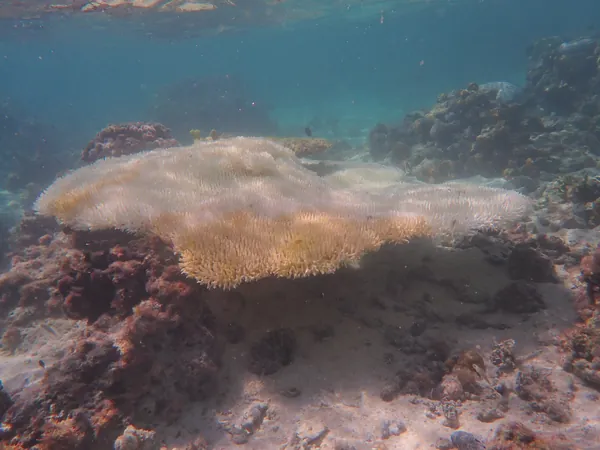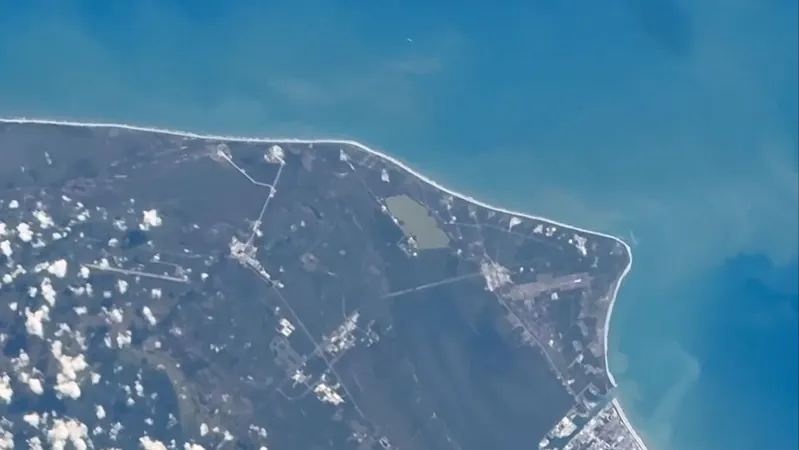
Coral Bleaching Crisis: Great Barrier Reef Faces Unprecedented Threat
2025-01-21
Author: Amelia
Introduction
The Great Barrier Reef, one of the world’s most treasured natural wonders, is currently grappling with a severe crisis that has marine scientists alarmed. A groundbreaking study conducted by a team from the University of Sydney reveals catastrophic coral bleaching events that shook the southern region of this UNESCO World Heritage Site during the early months of 2024.
Research Overview
Under the leadership of Professor Maria Byrne from the School of Life and Environmental Sciences, this important research presents the first peer-reviewed insights into the impact of the relentless marine heat waves that have battered coral ecosystems. The findings raise dire alarms for marine biodiversity and the communities that rely on these crucial habitats for their livelihoods.
Study Findings
The startling results of the study, published in the reputable journal Limnology and Oceanography Letters, detail the health of 462 coral colonies monitored over a grueling 161-day period at the University of Sydney's research station on One Tree Island. The data is alarming: by February 2024, 66% of these colonies had succumbed to bleaching, a figure that escalated to 80% by April. Tragically, by July, 44% of the once-bleached individuals perished, while specific coral species, such as Acropora, faced a jaw-dropping mortality rate of 95%.
Expert Opinions
Professor Byrne expressed her concern, stating, 'Our findings underscore the urgent need for action to protect coral reefs. These ecosystems are biodiversity hotspots and vital for food security as well as coastal protection. Despite being protected, the southern Great Barrier Reef could not escape the extreme heat stress that triggered this catastrophic event.'
Heat Stress and Disease
The study also sheds light on the intricate relationship between heat stress and disease emergence among corals. Alarmingly, some Goniopora corals developed a fatal condition known as black band disease, exacerbating the already high mortality rates. The rapid succession of bleaching and disease among previously resilient corals underscores the daunting challenges scientists face regarding the future of coral reef ecosystems amid warming oceans.
Call to Action
Highlighting the urgency of the situation, Professor Ana Vila Concejo, a co-author of the research from the School of Geosciences, stated, 'This research sends a powerful message to policymakers and conservationists. The resilience of coral reefs is under immense pressure, and it is imperative to prioritize strategies that enhance their ability to withstand climate change impacts.'
Socioeconomic Implications
The repercussions of this study ripple far beyond environmental concerns. Coral reefs are critical to human communities for providing fisheries, tourism opportunities, and coastal defense. With the Great Barrier Reef increasingly threatened by climate change, the study advocates for a cooperative conservation approach that integrates local communities, scientists, and policymakers.
Conclusion
Dr. Shawna Foo, a Sydney Horizon Fellow and co-author of the research, described witnessing the impact on a reef historically protected from mass bleaching as profoundly disheartening. She emphasized the high rates of mortality and disease observed in this once-pristine area, underscoring the severity of the crisis. While the reef’s protective status could not prevent the heat wave's impacts, tracking its recovery will be crucial in understanding the long-term future of this iconic ecosystem.
As the Great Barrier Reef faces one of its most significant challenges on record, it is clear that immediate action must be taken to preserve this vital ecological treasure before it’s too late. Will humanity step up to safeguard the reefs that sustain so much life and bring beauty to our world? Only time will tell.









 Brasil (PT)
Brasil (PT)
 Canada (EN)
Canada (EN)
 Chile (ES)
Chile (ES)
 Česko (CS)
Česko (CS)
 대한민국 (KO)
대한민국 (KO)
 España (ES)
España (ES)
 France (FR)
France (FR)
 Hong Kong (EN)
Hong Kong (EN)
 Italia (IT)
Italia (IT)
 日本 (JA)
日本 (JA)
 Magyarország (HU)
Magyarország (HU)
 Norge (NO)
Norge (NO)
 Polska (PL)
Polska (PL)
 Schweiz (DE)
Schweiz (DE)
 Singapore (EN)
Singapore (EN)
 Sverige (SV)
Sverige (SV)
 Suomi (FI)
Suomi (FI)
 Türkiye (TR)
Türkiye (TR)
 الإمارات العربية المتحدة (AR)
الإمارات العربية المتحدة (AR)